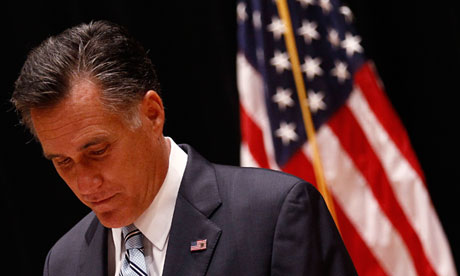
How afraid should we be of Mitt Romney assuming the role of America’s commander in chief? It is probably the most important question the outside world has to brood upon in the run-up to election day, Nov. 6.
With Barack Obama as the U.S. president, foreign policy has landed in safe hands. The beginning was a little tentative — he made no obvious stand for the freedom fighters on Tehran’s streets and he had exaggerated expectations concerning the kind of dialogue that could be achieved with the world’s dictators.
However, with time, Obama and his secretary of state, Hillary Clinton, have developed an admirable sensitivity in their relations with the outside world. It is not at all easy to put a label on their foreign policy. It includes both idealism and realpolitik, soft and hard power, coalition building as well as solo efforts.
And it is probably this that makes American foreign policy under Obama so well-measured. The world shouldn’t be forced into an idealistic doctrine, but be addressed according to the situation. When the Arab Spring pulled the rug from under the U.S.’ allies in the Arab world, it was realized that the United States must stand with the demonstrators. With the help of Western allies, the Libyan tyrant, Gadhafi, was overthrown.
Not everything stands up to scrutiny — such as the betrayal of the demonstrators in Bahrain — but on the whole, the U.S. has performed well in one of the greatest upheavals since the fall of the Berlin Wall.
Obama has ended the war in Iraq and initiated a lengthy retreat from Afghanistan. The single greatest triumph for Obama is of course the killing of Osama bin Laden. International law sadly has been abused in the struggle against al-Qaida, but a narrower focus in the hunt for terrorists is essentially positive.
In one area, however, Obama has failed: his attempt to solve the Israeli-Palestinian conflict. The plans for an establishment of a Palestinian state within one year, which he proposed in a high-profile speech in Cairo in 2009, have become null and void.
Against this record, one can compare Mitt Romney’s foreign policy agenda. How it looks no one knows at the moment. In the foreign policy debate in Florida the night before last, a more moderate Mitt Romney emerged — one who chooses not to pick a fight on foreign policy.
In other situations, Romney the hawk appears, who surrounds himself with many of George W. Bush’s former advisors from the neo-conservative right. During one visit to Israel earlier this year, he explained that Jerusalem — the eastern half of which is annexed — ought to be recognized as Israel’s capital and he has worryingly intensified his tone against Iran, while at the same time pledging a more confrontational line against China and Russia. Furthermore, Romney the hawk wants to invest more in defense.
So which Romney is the real Romney? Let us hope that we never get to find out the answer to that question.

Leave a Reply
You must be logged in to post a comment.